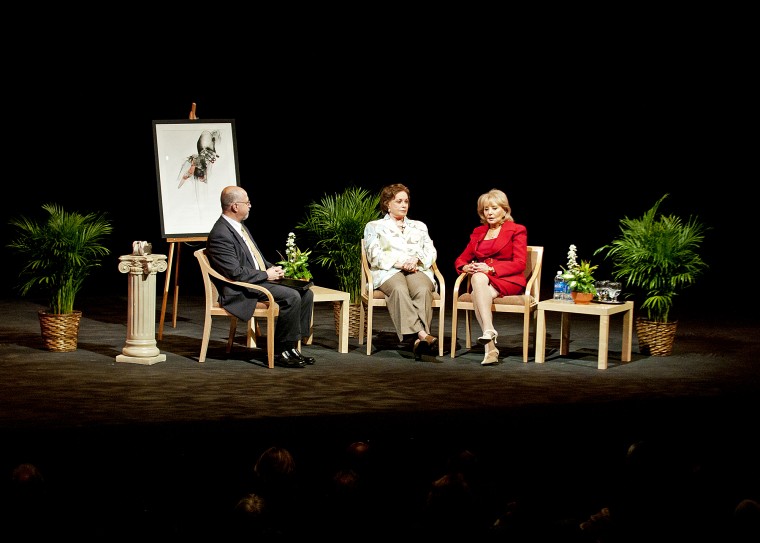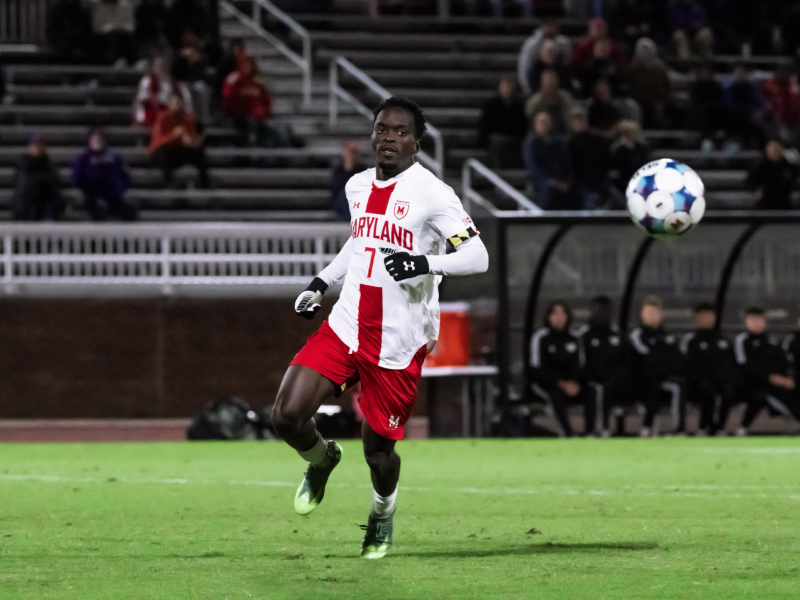
Jehan Sadat (center) and journalist Barbara Walters (right) discuss recent Middle Eastern revolts and their impact on the world in the Clarice Smith Performing Arts Center last night.
When ABC Evening News correspondent Barbara Walters went to Egypt for the first time in the 1970s, she not only got the interview she wanted with two clashing Middle East leaders — she was part of history in the making.
More than 30 years after she arranged the first joint interview with Israeli Prime Minister Menachem Begin and Egyptian President Anwar Sadat, Walters and Jehan Sadat, widow of the assassinated Egyptian leader, discussed the Middle East and the West’s ever-changing relationship in the wake of the region’s recent political unrest. More than 200 people turned out for the event, which was held in the Clarice Smith Performing Arts Center.
“When people ask me who means the most of the people I’ve interviewed, I always say Anwar Sadat … because it changed history,” Walters said.
The friendship between Walters and Sadat, which was formed at an unlikely time, prompted government and politics professor Shibley Telhami — the university’s Anwar Sadat Professor for Peace and Development — to invite the pair to the campus to show Western and Middle Eastern relationships can be sustainable.
“Given how different [Walters’ and Sadat’s] histories are and yet how close they have become … that itself, I think, provides a historical perspective to students to see that the perceptions that we … may now have about the region evolve as a consequence of major events,” he said. “You’re talking about realities that change and perceptions that change. That perspective offers a lot more understanding, open-mindedness and a lot more optimism for the future.”
Last month, Telhami conducted a study that found the majority of Americans support democracy in the Middle East even if new governments would have less friendly relationships with the United States.
Both women were optimistic but said they were unsure if February’s ouster of Egyptian President Hosni Mubarak, who ruled for 30 years, would foster a permanent democracy in the country. Mubarak resigned after nearly three weeks of demonstrations by Egyptians who demanded change.
“[This has been] their own internal desire for change,” Walters said of the Arab citizens. “It had nothing to do with the United States.”
Sadat said she saw parallels between the 1952 revolution and this year’s uprisings.
“Both were peaceful revolutions,” she said. “I was one of the 85 million Egyptians that were happy with the revolution. … The people became very close, and they were united in such a way that all of them were one. … It was something new for everywhere. Nothing like that has ever happened before.”
Students said they enjoyed seeing the two women in a relaxed, conversational setting.
“It’s very important to be involved and be aware of what’s going on after what’s happened in the Middle East,” said senior neurobiology and physiology major Sanmeet Singh. “We can’t just hide away in a bubble. We need to stay informed.”
Toward the end of the forum, Walters noted how “remarkable” recent events have been and told the audience to be thankful for the progress that has been made, referring to both the Arab uprisings and the death of Osama bin Laden, the mastermind of the Sept. 11 attacks.
“We admire what the Egyptians have done. We have all the fear. We want democracy, but we don’t know where it’s going to go yet, and that’s something that will have to evolve,” Walters said. “I think today we should just be happy and amazed that we are at this point in history.”
abutaleb at umdbk dot com



